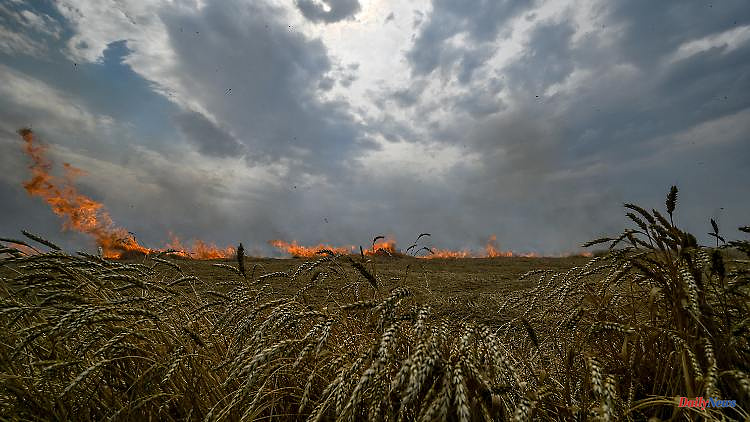Many African countries are warning of famine because they lack grain imports from Ukraine and Russia. This prompted the EU to take an unusual step: it wants to release frozen funds from Russian banks if they are used to transport food.
The European Union wants to ease some of its sanctions on Russian banks so as not to affect global food supplies. According to a proposal by the EU Commission, blocked Russian transactions should be able to be released again if they relate to trade in grain or fertilizers. Ukraine had warned the EU against making concessions to Moscow.
According to the text, the authorities of a Member State can "authorize the release of certain frozen funds (...) if they determine that these funds or economic resources are used for the purchase, import or transport of agricultural and food products, including wheat and fertilisers , required are".
According to the information, this exception affects seven sanctioned Russian banks, including the state-owned foreign trade bank VEB. The EU countries wanted to "make it clear that the sanctions in no way impede the transport of grain from Russia or Ukraine," said a diplomat in Brussels. The Europeans are also reacting to warnings of famine, especially from African countries. Before the Ukraine war, these countries imported more than half of their grain from Ukraine or Russia.
According to diplomats, the EU states want to formally adopt the revised sanctions by Wednesday evening or Thursday morning. They also provide for a ban on imports of Russian gold into the EU. Because of the small amounts, this is more of a symbolic character.
Russia's railway RZD is also severely affected by the sanctions imposed by the West in the wake of the Ukraine war and is asking the EU to withdraw the punitive measures. They are socially unfair, the state-owned company argued on the Telegram news channel. "EU sanctions are aimed at limiting RZD's ability to carry out its humanitarian missions and are discriminatory towards the people of Russia."
RZD was one of the first companies to end up on the sanctions list after troops and military equipment for the attack on Ukraine had been transported to the site, mostly by rail. "The EU Council of Ministers classifies trains as 'luxury goods' for Russian citizens and blocks their deliveries and repairs," it said. However, it is an environmentally friendly means of transport, especially for the socially disadvantaged in Russia. Pensioners, the disabled and large families are affected. In addition, the sanctions violate the principle of free competition.
While the Russian leadership mostly tries to portray the Western sanctions as largely insignificant, the RZD request is an admission that the punitive measures are working. They complicate the financing and modernization of the railway. RZD also addressed the long-standing partnership with the German Siemens group. The cooperation was only stopped because of the European export embargo on railway technology. Against this background, "RZD calls on the EU Council of Ministers to lift the sanctions against them".












